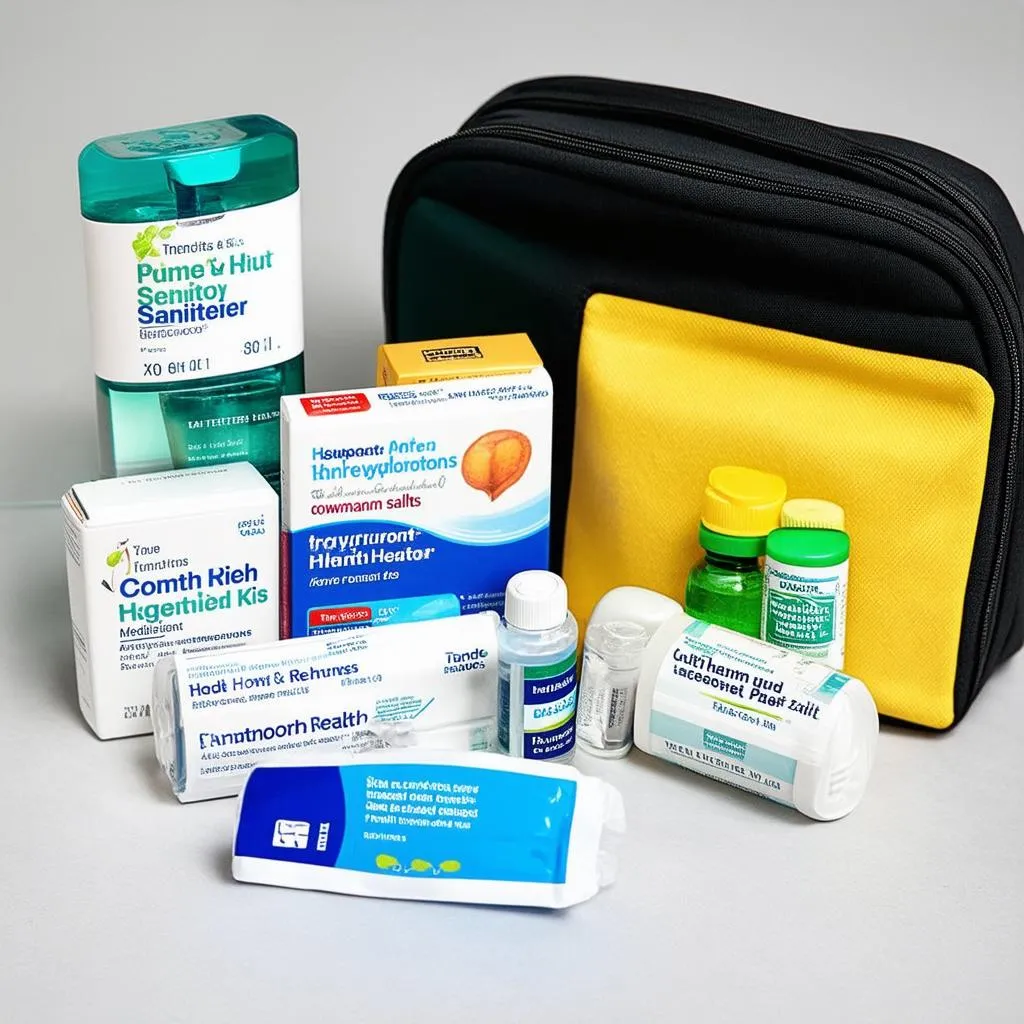Picture this: You’re finally exploring the bustling streets of Bangkok, indulging in delicious street food and soaking in the vibrant culture. But then, disaster strikes – traveler’s diarrhea. Not only is it uncomfortable, but the thought of it being contagious can put a damper on your trip.
So, how long is traveler’s diarrhea actually contagious? Let’s delve into the details and equip you with the knowledge to stay healthy and enjoy your travels.
Understanding Traveler’s Diarrhea
Traveler’s diarrhea, often dubbed “Montezuma’s Revenge” or “Delhi Belly,” is a common ailment that plagues many travelers, especially those venturing to developing countries. It’s typically caused by bacteria, viruses, or parasites lurking in contaminated food or water.
While the symptoms – diarrhea, nausea, stomach cramps – are usually short-lived, the question of its contagiousness often arises.
So, How Long Are You Contagious?
The contagious period of traveler’s diarrhea depends on the culprit causing your discomfort.
- Bacterial Infections: If bacteria like E. coli are the culprits, you can be contagious for as long as you experience diarrhea, and even for a few days after the symptoms subside.
- Viral Infections: Viral infections, like norovirus, tend to be highly contagious and can spread quickly. You can remain contagious for a few days to a week after your symptoms clear up.
- Parasites: Parasitic infections like Giardia can linger for weeks, even after you think you’re in the clear.
 Traveler Experiencing Diarrhea
Traveler Experiencing Diarrhea
Preventing the Spread: Essential Tips
No one wants to cut their trip short or risk spreading illness to others. Here are some crucial tips to prevent spreading the misery:
- Hand Hygiene is Key: Wash your hands thoroughly and frequently with soap and water, especially after using the restroom and before eating. If soap and water aren’t available, hand sanitizer with at least 60% alcohol is a good alternative.
- Food and Water Safety: Be cautious about what you eat and drink. Stick to bottled water, avoid ice in drinks, and ensure your food is cooked thoroughly.
- Stay Hydrated: Diarrhea can lead to dehydration, so drink plenty of fluids. Oral rehydration solutions can be particularly helpful.
- Rest Up: Your body needs time to recover. Get plenty of rest and listen to your body’s cues.
- Consider Probiotics: Probiotics can help restore the balance of good bacteria in your gut, potentially shortening the duration of your illness.
Traveling with Traveler’s Diarrhea: Dos and Don’ts
- Do: Seek medical attention if you have severe diarrhea, bloody stools, fever, or signs of dehydration.
- Don’t: Hesitate to inform your travel companions if you’re experiencing symptoms. It’s better to be safe than sorry.
- Do: Pack over-the-counter medications like bismuth subsalicylate (Pepto-Bismol) or loperamide (Imodium) to help manage symptoms.
Planning Ahead: Vaccines and Precautions
While not always preventable, some precautions can minimize your risk of encountering this unwelcome travel companion:
- Consult a Travel Medicine Specialist: Before your trip, especially if you’re traveling to a region known for traveler’s diarrhea, consult a travel medicine specialist. They can advise you on necessary vaccines and preventative measures.
- Consider Vaccines: Vaccines are available for some diarrhea-causing illnesses, like Hepatitis A.
- Pack a Travel Health Kit: Include essential items like hand sanitizer, rehydration salts, and over-the-counter medications for diarrhea.
 Essential Items in a Travel Health Kit
Essential Items in a Travel Health Kit
Traveler’s Diarrhea: Beyond the Symptoms
Experiencing traveler’s diarrhea can be unsettling, especially when you’re exploring a new destination. Remember, it’s important to be mindful of hygiene, food safety, and to seek medical attention when needed.
For further travel health advice and resources, be sure to explore travelcar.edu.vn. We offer a wealth of information to help you plan safe and healthy trips.
FAQs: Addressing Your Concerns
1. Can I get traveler’s diarrhea from another person?
Yes, traveler’s diarrhea is contagious and can spread through direct contact with an infected person or contaminated surfaces.
2. Can I swim in a pool if I have traveler’s diarrhea?
It’s best to avoid swimming in pools or other public water sources while you have diarrhea and for a few days after your symptoms clear up to prevent spreading the illness.
3. When should I see a doctor for traveler’s diarrhea?
If your diarrhea is severe, accompanied by blood or mucus, high fever, or signs of dehydration, seek medical attention immediately.
4. Are there any specific foods I should avoid to prevent traveler’s diarrhea?
It’s generally advisable to avoid consuming raw or undercooked foods, unpeeled fruits and vegetables, tap water, and ice in drinks, especially in areas with questionable sanitation standards.
5. Can I travel to India if I’m prone to traveler’s diarrhea?
Absolutely! With proper precautions and by following food and water safety guidelines, you can minimize your risk and enjoy your trip to India. You might find our article on vaccines needed for travel to India helpful: [link to https://travelcar.edu.vn/what-vaccines-are-needed-to-travel-to-india/ with text “what vaccines are needed to travel to India”].
Embracing Adventure, Safely
Travel is an incredible way to experience new cultures, create lasting memories, and broaden our horizons. By being informed and taking necessary precautions, we can minimize health risks and focus on enjoying the journey.
Remember, your well-being is paramount. Listen to your body, be proactive in your health practices, and don’t let traveler’s diarrhea steal the joy from your adventures!